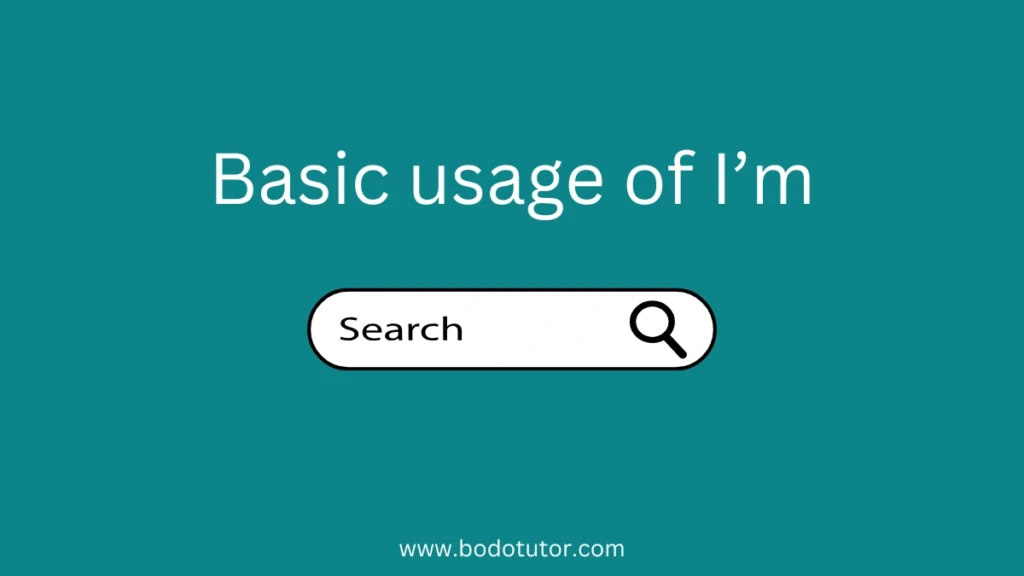The phrase “have to” signifies something that must happen in the near future. It conveys certainty, necessity, or obligation.

I have to + (verb)| Learn English in Bodo
Here are some examples:
“I have to switch schools.”
“आं फरायसालि सोलायनांगोन।”
“I have to go to the bathroom.”
“आं बाथरुमाव थांनांगोन।”
“I have to leave.”
“आं थांनांगोन”।
“I have to wake up early tomorrow.”
“आं गाबोन थाब सिखारनांगोन।”
“I have to finish my homework.”
“आं आंनि ह’मवर्कखौ फोजोबनांगोन।”
“I have to attend a meeting this afternoon.”
“आं दिनै सानजौफुआव मोनसे मिटिंआव बाहागो लानांगोन।”
“I have to clean my room today.”
“आं दिनै आंनि खथाखौ साफा खालामनांगोन।”
“I have to take my dog for a walk.”
“आं आंनि सैमाखौ थाबायनो लांनांगोन।”
“I have to prepare dinner tonight.”
“आं दिनै मोनानि ओंखाम जानांगोन।”
“I have to pay my bills on time.”
“आं आंनि बिलफोरखौ थि समावनो होनांगोन।”
“I have to call my friend back.”
“आं आंनि लोगोखौ कल खालामफिननांगोन।”
“I have to visit my grandparents this weekend.”
“आं बे सप्तानि जोबनायाव आंनि आबै-आबैखौ लोगो हमहैनांगोन।”
“I have to submit the report by Monday.”
“आं समबारसिमाव रिपर्टखौ गथायनांगोन।”
Adding the word “don’t” indicates that something is not necessary or required.
“I don’t have to switch schools.”
“आं फरायसालि सोलायनांगौनि गोनांथि गैया।”
“I don’t have to use the telephone.”
“आं टेलिफ’नखौ बाहायनो गोनांथि गैया।”
“I don’t have to go to the bathroom.”
“आं बाथरुमाव थांनांगौ गैया।”
“I don’t have to leave.”
“आं थांनांगौ गैया।”





